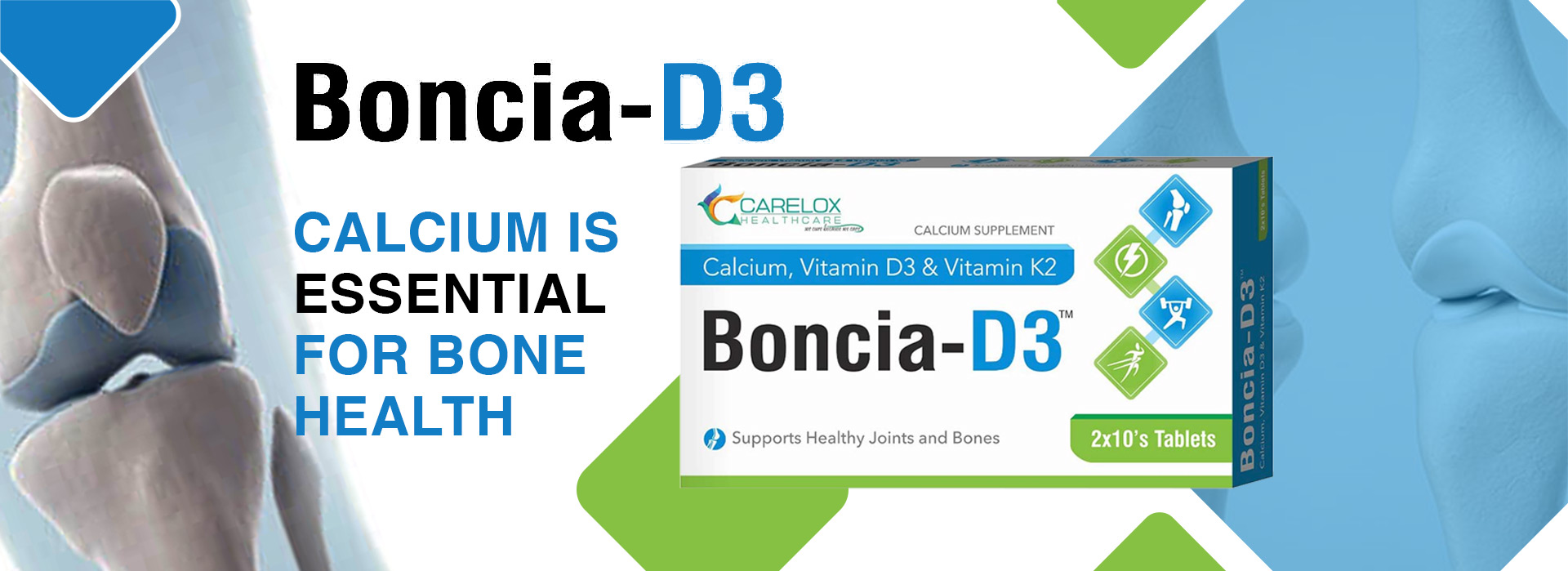




Calcium is essential for bone health and for keeping the bone mass in the human skeleton. Sufficient intake of calcium has a significant role in building and maintaining maximum bone mass and consumers should not doubt the effectiveness of calcium. Most people do not get enough calcium from diet alone, and this is where a calcium supplement can be important to humans of all ages. However, large studies over the past 20 years with as much as 12,000 participants show that calcium taken alone can increase the risk of cardiovascular diseases, myocardial infarction and stroke by as much as 30% according to a study published in British medical Journal. This is called the “Calcium Paradox“.
A unique new calcium supplement with vitamin K2 and vitamin D3 for effective calcium utilization and reduced risk of cardiovascular diseases may be the solution. A recent study published in the British Journal of Nutrition 2016, stated that co-supplementation of vit D, vit K2 & Ca for 12 weeks among diabetic patients with CHD resulted in a significant reduction in left Carotid Intima-Media Thickness (CIMT) vs Placebo.
These Three Ingredients works synergistically, which may assist with:
- Building and maintain strong bones
- Preventing cardiovascular diseases
- Optimizing the peak bone mass
- Reducing the risk of cardiovascular death by nearly 50%
Vitamin K2 ensures an optimal intake of Calcium:
- Before and during menopause to help prevent osteoporosis
- Preventing cardiovascular diseases, Natural vitamin K2 works synergistically with and improves the efficiency of Bisphosphonate to further benefit osteocalcin activation and bone mineral density (BMD)
Calcium is a nutrient that all living organisms need, including humans. It is the most abundant mineral in the body, and it is vital for bone health.
Humans need calcium to build and maintain strong bones, and 99% of the body’s calcium is in the bones and teeth. It is also necessary for maintaining healthy communication between the brain and other parts of the body. It plays a role in muscle movement and cardiovascular function.
Calcium plays a very important role in the body. It is necessary for normal functioning of nerves, cells, muscle, and bones. If there is not enough calcium in the blood, then the body will take calcium from bones, thereby weakening bones.
Calcium plays various roles in the body. These include the following:
Bone Health
Around 99% of the calcium in the human body is in the bones and teeth. Calcium is essential for the development, growth, and maintenance of bone.
Females who have already experienced menopause can lose bone density at a higher rate than males or younger people. They have a higher risk of developing osteoporosis, and a doctor may recommend calcium supplements.
Muscle Contraction
Calcium helps regulate muscle contraction. When a nerve stimulates a muscle, the body releases calcium. The calcium helps the proteins in muscle carry out the work of contraction.
When the body pumps the calcium out of the muscle, the muscle will relax.
Cardiovascular System
Calcium plays a key role in blood clotting. The process of clotting is complex and has a number of steps. These involve a range of chemicals, including calcium.
Calcium’s role in muscle function includes maintaining the action of the heart muscle. Calcium relaxes the smooth muscle that surrounds blood vessels. Various studies have indicated a possible link between high consumption of calcium and lower blood pressure.
Vitamin K2
Vitamin K2 plays a central role in the metabolism of calcium – the main mineral found in your bones and teeth. Vitamin K2 Activates the calcium-binding actions of two proteins – matrix GLA protein and osteocalcin, which help to build and maintain bones.
Vitamin K2 for Healthy Bones
Vitamin K2 is arguably the most interesting vitamin of this decade. Its function is unique and its beneficial effects on bone and cardiovascular health have been clearly documented.
- Strong bones developed in childhood and maintained afterward reduces the risk of osteoporotic fracture as high peak bone mass buffers bone loss later in life
- K2 vitamins are required in order to utilize calcium to make bone matrix healthy. K2 vitamins activate a protein involved in the bone builing process, namely osteocalcin, which is capable of binding calcium to the mineral part of bone, thus strengthening the skeleton
- Vitamin K2 deficiency leads to the synthesis of inactive osteocalcin species that cannot bind calcium to the surface of bone
- The majority of adults and children are vitamin K2 deficient
Strongly Recommending Vitamin K2
Industry experts are now strongly recommending vitamin K2 supplementation to help ensure bone and heart health: “the goal should be to provide supplements that help put calcium in the bones where it is needed, and keep it out of the soft tissues and arteries, where it can be harmful. Recent research has shown that vitamin K2 plays a vital role in calcium utilization, and we believe it should be included in all calcium supplements”.
Vitamin D (ergocalciferol-D2, cholecalciferol-D3, alfacalcidol) is a fat-soluble vitamin that helps your body absorb calcium and phosphorus. Having the right amount of vitamin D, calcium, and phosphorus is important for building and keeping strong bones. Vitamin D is used to treat and prevent bone disorders (such as rickets, osteomalacia). Vitamin D is made by the body when skin is exposed to sunlight. Sunscreen, protective clothing, limited exposure to sunlight, dark skin, and age may prevent getting enough vitamin D from the sun.
Vitamin D with calcium is used to treat or prevent bone loss (osteoporosis). Vitamin D is also used with other medications to treat low levels of calcium or phosphate caused by certain disorders (such as hypoparathyroidism, pseudo hypoparathyroidism, familial hypophosphatemia). It may be used in kidney disease to keep calcium levels normal and allow normal bone growth.
